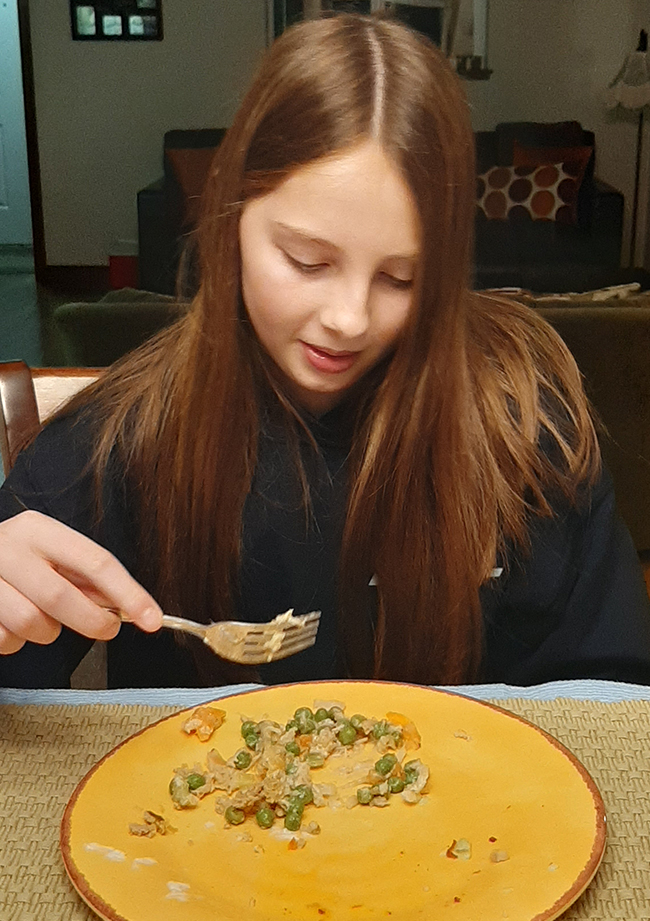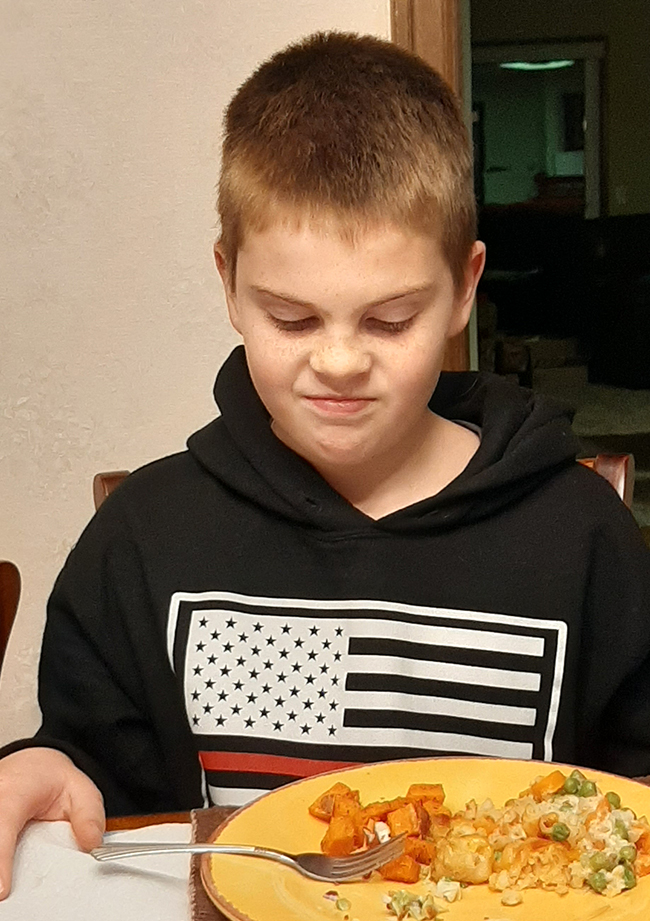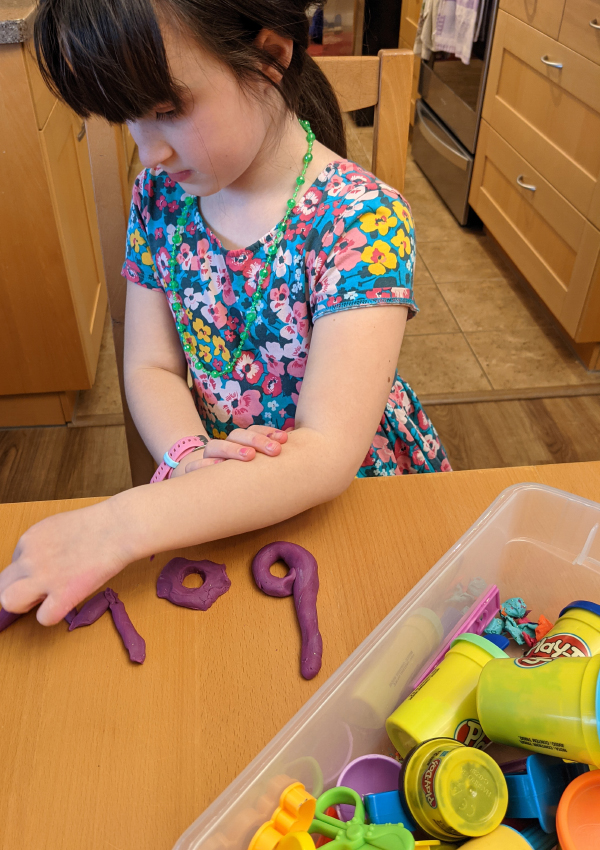Want to eliminate battles about food?
The subject of food is one I hear parents mention frequently as being a challenge. It can be the source of frustration for both parents and children and the truth is not only does it not need to be, but it also shouldn’t be. So, would you like to eliminate battles over food?

Food is a necessity. It should not be the source of battles that create angst and perpetuate poor eating habits. We all know that food matters because of the nutrients and energy it provides us, the support for our immune system and the overall functioning of our body. There are things you can do to make sure that meals/food do not become a battle in your home.
DISHING UP: Something my husband and I did that I believe helped us to avoid mealtime struggles with our kids had to do with “dishing up”. No one knows how much someone else feels like eating at any given moment. Sometimes we are not very hungry, other times we are “starving”, and sometimes we like an item or two being offered but maybe not another. Only we know for ourselves and it can change from day-to-day and meal-to-meal. So instead of dictating what our kids would eat, we either dished them up and they ate what they wanted of it (leaving what they didn’t) or they dished themselves up, with the understanding that they would need to finish what they took. This is one way to allow kids control over their choices and portions.

There are several things I like about this method. One is that it teaches kids to be thoughtful about what they take. My kids learned that it was best to take a little of something and get more if they wanted it later than it was to take too much and be stuck finishing it. Also, because there is no pressure to “clean your plate” when someone else dishes them up, the focus then becomes on enjoying your time together and eliminates battles and power struggle about food. Being mindful about what is dished up also helps to prevent food waste.
NO THANK YOU BITE: If you have never heard of a No Thank You Bite; you will be glad you did today! I don’t remember if we stole this from someone else (probably) or came up with it ourselves but who cares because it’s a fabulous idea. When I was growing up it was not an option to say, “I don’t like that” and not eat it. Back in the day making kids finish what was on their plate was a thing and you had no choice. I remember gagging down several foods over the years. Liver being the worst. Yuck! Making kids eat something they don’t like (whether real or perceived) serves no purpose other than to ensure they hold their ground about their displeasure and to create an issue where there doesn’t need to be one. A concern though, especially if you have a picky eater, is that they will never try new things or eat enough if you don’t “make” them. So how do you broaden your child’s palate and exploration of new foods and flavors? The No Thank You Bite!
Whether it was an entirely new food being introduced or a repeat of something the kids already knew (or thought) they didn’t like, we eliminated issues because the kids knew the expectation was that they only had to take one bite and then were able to say “No, thank you” if they didn’t want any more. This way, they were far more receptive to trying new things because they knew they had an out if they wanted it. There were times that the kids actually liked the thing and would eat it just fine or maybe even ask for more. Other times they didn’t and stuck to just the one No Thank You Bite. Either way was fine. This allowed the kids to discover their own tastes and preferences with an open mind and less conflict.
DON’T BE A SHORT ORDER COOK: This one is going to show the old school in me. I firmly believe kids should eat what is prepared for them. Do you let them go to some else’s home and put in requests or change the menu? I hope not. I also believe that by allowing options, you are inadvertently creating a picky eater. If I got to choose what I wanted every meal as a kid I likely would have stuck to my few favorites and that’s it. Who wouldn’t? If a child simply refuses to eat what you are serving, let them. They should be able to politely decline. I don’t want to be forced to eat and I don’t think kids should be forced to eat either. But there also should be no other food offered until the next meal. They WILL NOT starve, despite what they will likely be telling you, possibly through tears and a great theatrical display. You know rationally that they won’t starve. You can do this! Continue to offer the original meal, if it makes you feel better, but if they are “starving” they will eat the meatloaf, I promise! The expectation of meals should be established ahead of time for best results. If you haven’t already done this, but would like to, the links I provided below are from a previous series of posts that explain how to set any form of expectation:
Additional perspective about food to consider
- Be careful about using food as a reward – Everything in moderation but when food is used frequently as a reward it isn’t usually broccoli. (How many fruit roll ups do you think a kid should have in a day?)
- Do not use food as a punishment – It should not be withheld or used as a threat or way to control a child.
- Children are not cows; they do not need to graze all day. You can find healthy eating schedules online, that include snacks, if you need help establishing one.
- However, if you have a child who is not a big eater you may want to eliminate any type of snack during the day and focus only on meals. If they are hungry at mealtime they will be more receptive to what you offer than if they are not hungry.
- Most kids will prefer a waffle with syrup over oatmeal with honey but only if they have the comparison. Start with the healthy good stuff when they are young, and they will likely continue to gravitate towards it.
- For kids with food sensory issues – Try preparing the things they don’t like a different way. If the chicken is “slimy” try adding a batter for a dryer texture.
Food is the source of comfort and security for some and a necessary evil for others. However, those are the extremes and, as with most things, balance and finding the middle ground is best. I hope you find these suggestions to eliminate battles about food beneficial and are able to enjoy ONE peaceful meal after another. 😉







I love the “dishing up” idea!
I’m so glad you liked that idea Kara!